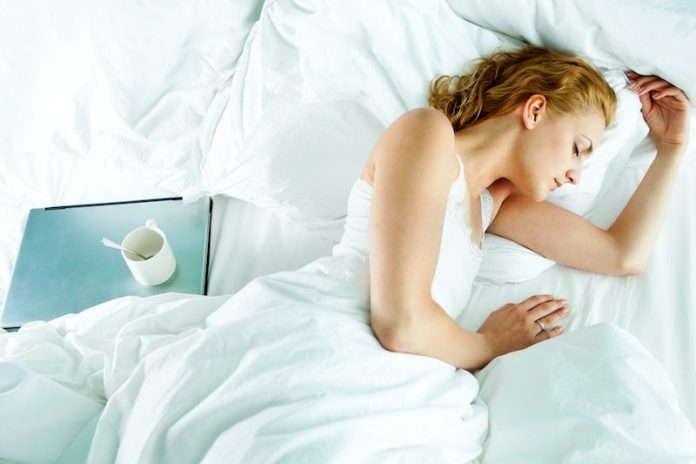
At this point in the pandemic, it may not come as a surprise that the impacts of COVID-19 have included increases in mental health issues such as depression, anxiety, and substance use.
Along with those issues, recent reports show that sleep has been impaired as well.
The pandemic has fueled a significant increase in insomnia—with roughly 60 percent of people reporting an increase in problems sleeping since the start of the pandemic.
In a new study from Penn Medicine, researchers found that it’s not just COVID-19 disease itself (its symptoms or exposure to the virus), but worries surrounding COVID-19 have significantly contributed to insomnia.
They evaluated associations between COVID-19 exposures, COVID-19 worries, and insomnia.
They found that greater severity of COVID-19-related worries was associated with an increase in insomnia symptom severity more than COVID-19-related exposure was—meaning worries about COVID-19 were a more consistent predictor of insomnia than COVID-19 exposures.
The team says that worrying is not the same as problem-solving. Sitting and stewing on the catastrophes that could come your way will not help you prepare for them.
Second, they recommend catching yourself when you notice getting stuck in a worry spiral. Third, redirect your attention back to the present moment using mindfulness strategies.
Fourth, note whether the worries that come up, again and again, are potential problems vs. actual problems. However, if chronic worries are impairing your life in any way, consider seeking help from a therapist.
And for those struggling with sleep, there are evidence-based (meaning researched-backed) strategies to help tackle insomnia.
These recommendations can be a fit for anyone who is trying to improve their sleep schedules and habits.
The first tip might sound counter-initiative, but the team actually recommends limiting time in bed. If you use this strategy, it’s important to wake up at the same time every day.
One other tip involves avoiding sleep to help improve sleep at night—skipping out on naps. The team recommends limiting naps, especially if one is pushing back their bedtime to fall asleep sooner after getting into bed.
Of course, there’s the recommendation many may have heard about limiting screen time. This can come into play a few ways.
First, if you haven’t fallen asleep after 15 minutes, it’s important to get out of bed and do a quiet activity like reading a book.
But the team stresses the importance of avoiding reading or browsing on your phone or watching television due to the impact of screen light on sleep.
Second, doomscrolling—continuing to read upsetting news—can take a toll on sleep. But by putting your phone down before bed, you can prevent getting wrapped up in upsetting content, which could affect your sleep.
If you care about sleep, please read studies about therapy that may treat sleep loss better than pills, and this sleep-related brain activity can help prevent Alzheimer’s disease.
For more information about sleep wellness, please see recent studies that physical activity may counter serious health harms of poor sleep, and results showing how to have better sleep at night.
The study is published in the Journal of Sleep Research and was conducted by Lily Brown et al.
Copyright © 2022 Knowridge Science Report. All rights reserved.



